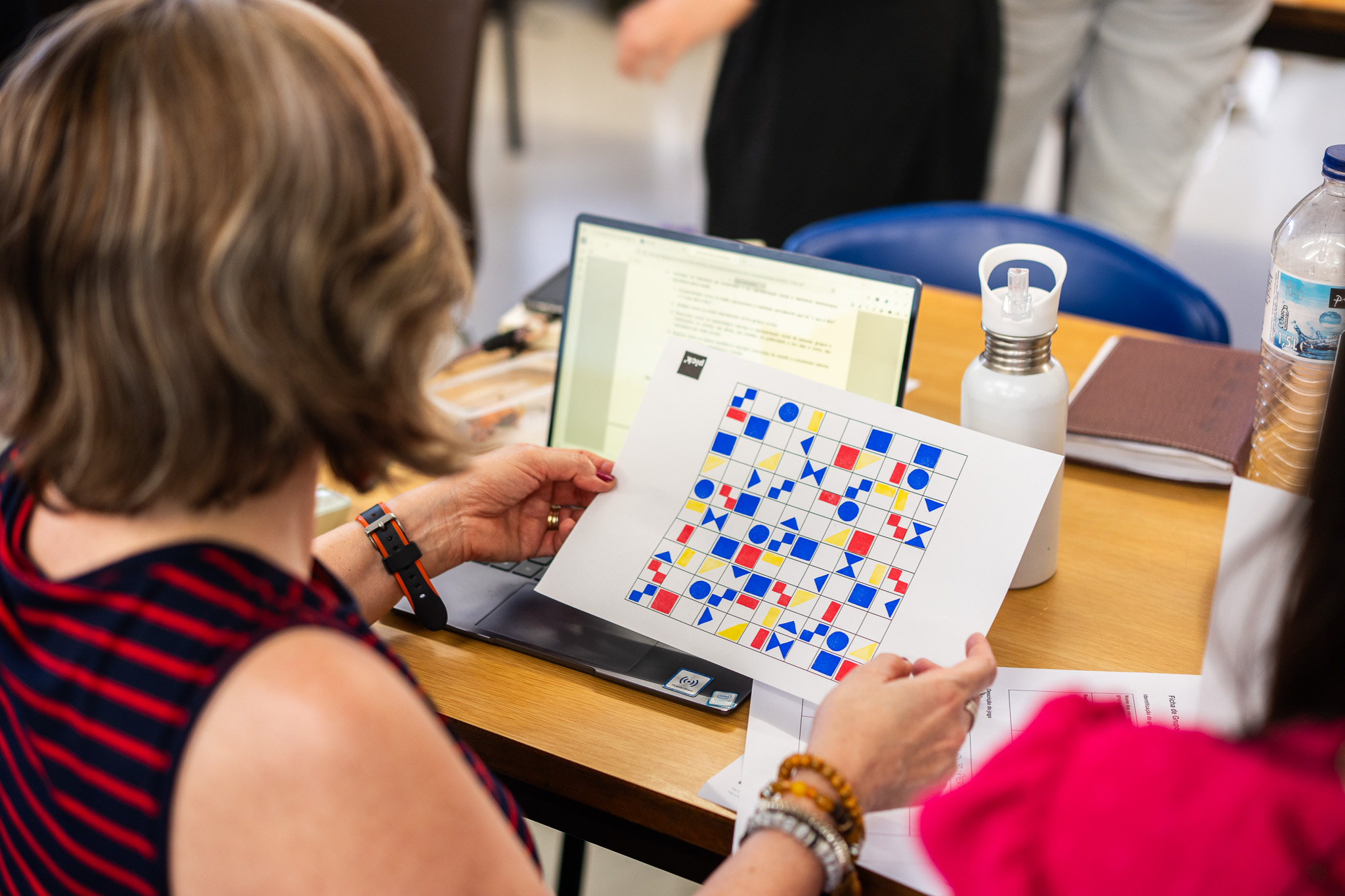CoLab Games: Workshop tests digital platform to bring educational games to life
On June 17, the workshop “Creating board games for pedagogical and communication contexts” brought together more than a dozen teachers and future teachers at the FabLab Benfica, at the Lisbon School of Education (ESELx), of the Polytechnic University of Lisbon (IPL).
This meeting was organized by the research project CoLab Games – Digital platform for customization of analog games (CoLab Games), from the School of Communication and Media Studies (ESCS-IPL), in partnership with ESELx, focused on the creation of analog games, with digital content, for use in pedagogical contexts of communication, literacy and citizenship.
The purpose of the workshop was to test and promote the Pick Pick digital platform, created within the context of CoLab Games.
“We thought the workshop was the ideal context because this way the platform would be tested by several people,” explained Filipa Lopes, professor at ESCS and the project coordinator. She added that the aim was to test three components: “the platform itself – usability and the questions that are generated –, the mechanics of the game – how it is played and what constraints the boards generate –, and the physical production of the board and cards.”
To this end, after a presentation of the project, the 12 participants organized themselves into groups and were challenged to develop prototypes of personalized board games.
The common theme in this workshop was media literacy, with each group exploring one of the topics defined in the document Referencial de Educação para os Media, from the Ministry of Education.
Two groups created games for higher education students, one for secondary school students, and the fourth group created a game for use in a community context. The model is prepared for a variety of contexts and can be used at various levels of education or even in more informal and family environments.
During the session, boards in different formats were created, demonstrating the versatility of the platform. For example, one group opted for the simplest version of printing the board with the squares already drawn; another group painted the squares on the board (it is also possible to use stamps); and another group produced the board using 3D printing.
In order to test the dynamics of the games created, each group had the opportunity to try out their own game.
In the end, the overall feedback was very positive. “The platform is very intuitive, it’s easy to understand the logic. In just a few steps, we were able to create a game,” one of the participants shared. “I think it works really well, it’s very fast. Any teacher can apply it quickly,” commented another.
The whole group felt that this could be a very useful tool for the pedagogical context and saw potential in using it in various formats, including involving students in designing their own game.
At the same time, several suggestions were shared to improve the game creation process and the subsequent gameplay. One of the participants, for example, suggested that the challenges generated by the system should be more “hands-on,” avoiding formulations like “Debate [a given topic],” as they tend to “break” the flow of the game.
Finally, it was emphasized that rigor is needed when reviewing the questions and challenges automatically generated by the system. “The questions really need to be edited,” said one teacher. In any case, “it’s a great help, because the questions are already done, and we can change the question or give other answer options,” added a colleague from the same group.
As for the future, in addition to continuing to work on improving the platform, the team will organize “an exhibition and a conference on games and communication” in the next semester, said Filipa Lopes. The exhibition “will feature the boards that were produced and photographs of the prototypes and their construction process,” she added.
CoLab Games is funded by IPL through the IDI&CA program (Research, Development, Innovation and Artistic Creation). In addition to ESCS and ESELx, the project’s partners include Museu da Paisagem and the UNESCO Chair on Communication, Media and Informations Literacy and Citizenship (ESCS-IPL).

